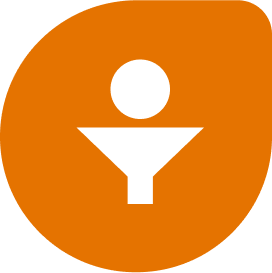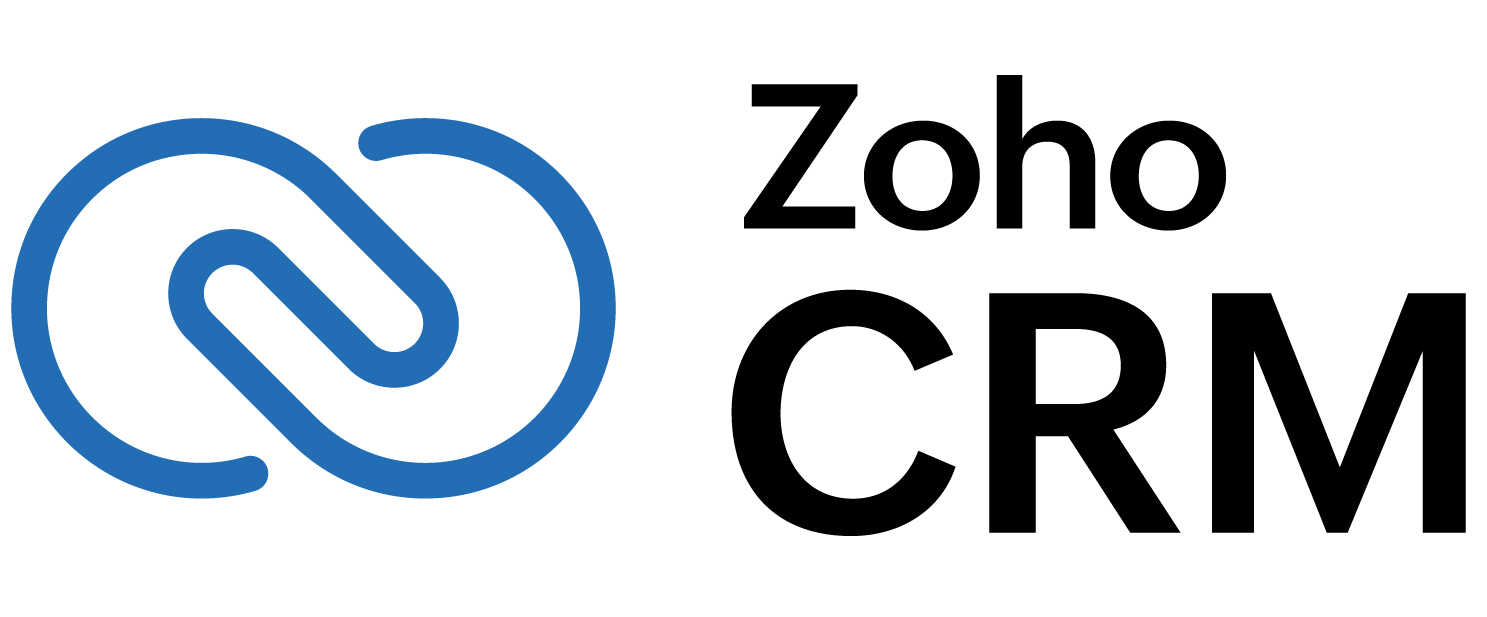Top Client Management Softwares
Client Management software serves as a crucial tool in organizing and maintaining professional relationships. This software streamlines processes, enhancing interactions with clients through seamless communication, data organization, and task management. By centralizing customer details, businesses can efficiently track interactions, set reminders for follow-ups, and manage documents. It reduces a... Read More
34 companies found
Freshsales
Product Description
Freshsales is a straightforward sales CRM designed to make managing customer relationships easy and efficient. At its core, Freshsales focuses on streamlining the sales process, helping you prioritize leads, and organize your sales funnel. It offers a clean, easy-to-use interface where you can keep track of everything from initial contact to closing the deal. One of the first things you'll notice... Read More
Users
- • No Data
Industries
- • No Data
Market Segment
- • No Data
Product Description
Pipedrive is a CRM (Customer Relationship Management) software designed to help sales teams manage their pipelines efficiently. It's all about making the complex process of sales simpler and more straightforward. Pipedrive gives salespeople tools that help them stay organized and focused on what matters most: closing deals. The main idea behind Pipedrive is to let you see your sales process at a ... Read More
Users
- • No Data
Industries
- • No Data
Market Segment
- • No Data
Product Description
Act! is a simple yet powerful tool designed to help small to medium-sized businesses grow and build better relationships with their customers. It combines contact management and email marketing in one easy-to-use platform, so you can keep track of all your customer interactions, manage your schedules, and send out personalized marketing campaigns without any hassle. With Act!, you can store all y... Read More
Users
- • No Data
Industries
- • No Data
Market Segment
- • No Data
Product Description
ProofHub is a project management and team collaboration software designed to streamline the way you and your team work. It offers a centralized place for you to plan, collaborate, and organize work, making sure everyone is on the same page. Whether you’re managing a project, handling remote teams, or just trying to keep track of various tasks, ProofHub provides all the essential tools you need. ... Read More
Users
- • No Data
Industries
- • No Data
Market Segment
- • No Data
Product Description
Pike13 is a software solution designed specifically to help businesses that provide classes, appointments, and events streamline their operations. It's perfect for fitness studios, yoga centers, music schools, and even martial arts gyms—essentially, any service-based business that needs a better way to manage their day-to-day tasks. At its core, Pike13 simplifies the administrative side of runnin... Read More
Users
- • No Data
Industries
- • No Data
Market Segment
- • No Data
Product Description
Mercaux is a software solution designed specifically for retail businesses, aiming to enhance the in-store customer experience and streamline sales processes. Unlike traditional retail software, Mercaux provides a range of tools that help sales associates improve their interactions with customers, making each shopping experience more personalized and engaging. With Mercaux, sales teams can access... Read More
Users
- • No Data
Industries
- • No Data
Market Segment
- • No Data
Product Description
PushPress is designed to be the straightforward, effective solution for gym owners and fitness businesses looking to simplify their operations. If you're running a fitness studio, gym, or personal training business, PushPress helps you handle all the day-to-day tasks so you can focus on what you do best: fostering a great community and getting results for your clients. At its core, PushPress help... Read More
Users
- • No Data
Industries
- • No Data
Market Segment
- • No Data
Product Description
Ahsuite is a software platform designed to simplify and streamline the way service businesses manage their operations. We understand that running a service-based company can involve juggling a variety of tasks and keeping track of multiple clients and projects. That’s where Ahsuite comes in, offering an integrated solution to keep everything organized and running smoothly. Think of Ahsuite as you... Read More
Users
- • No Data
Industries
- • No Data
Market Segment
- • No Data
Product Description
Are you looking for a reliable, user-friendly tool to help manage your customer relationships? Say hello to Zoho CRM—a straightforward, effective solution designed to support businesses of all sizes in nurturing their customer interactions and improving sales. Zoho CRM focuses on making your day-to-day tasks easy to handle. Whether you're a small business owner, a sales manager, or part of a larg... Read More
Users
- • No Data
Industries
- • No Data
Market Segment
- • No Data
Product Description
Moxo is designed to make life easier for teams and businesses by streamlining their workflow and communication. Moxo brings all your interactions, tasks, and documents into one place, helping you get things done efficiently. Whether you're working with clients, teammates, or any other partners, Moxo aims to make collaboration smooth and hassle-free. At its core, Moxo focuses on keeping everything... Read More
Users
- • No Data
Industries
- • No Data
Market Segment
- • No Data
What is Client Management Software?
Client Management software helps businesses and organizations streamline their interactions with clients. This software category provides a suite of tools aimed at enhancing client relationships and supporting business growth. Its core function is to manage arrays of client data, interactions, and processes in an organized manner, paving the way for efficient workflow within client-facing operations.
Centralized Client Data
At the heart of Client Management software is the capability to centralize client information. This includes contact details, communication history, billing information, and more. By keeping all client-related data in one place, it becomes significantly easier to retrieve, update, and maintain accurate records. The centralized approach aids different departments or team members by ensuring everyone has access to the same, up-to-date client information.
Improved Client Communication
One of the primary benefits of using Client Management software is the enhancement of client communication. By keeping track of all interactions—whether through email, phone calls, or meetings—it supports timely and personalized communication. Automated reminders and follow-ups can be set up to ensure no client interaction slips through the cracks, helping businesses maintain strong client relationships.
Organized Task Management
Client Management software often includes task management features, allowing users to categorize and prioritize tasks associated with specific clients. This might involve setting deadlines, assigning responsibilities to team members, or tracking the progress of various tasks. Such tools enable teams to maintain a clear focus on client-related activities, helping to meet agreements and deliver on promises.
Analytics and Reporting
Utilizing analytics, Client Management software provides insights into client interactions and business performance. The software can generate detailed reports on metrics, like client acquisition costs, retention rates, or client satisfaction scores. These reports support data-driven decision-making, providing a comprehensive understanding of client-related trends within the business.
Integration Capability
Client Management software often comes with the ability to integrate with other vital business platforms, such as email clients, project management tools, or accounting software. This integration facilitates a seamless flow of information across the organization's operation, enhancing productivity and reducing redundancy in data entries.
Customization and Flexibility
Customization options available with Client Management software allow businesses to tailor solutions to their specific needs. Whether a company is handling client data, setting up communication preferences, or creating reports, customization ensures that the processes align with their operational protocols.
Scalability
As businesses grow, they face increasing demands in managing a larger client base. Client Management software is designed to scale alongside business growth, accommodating an expanding pool of client data without compromising on performance. This advantage allows businesses to continue leveraging the same system as they scale, sustaining long-term client engagement efforts.
The versatility and efficiency offered by Client Management software make it a vital tool in today's competitive business environments. From maintaining client data to supporting organizational tasks, the software enriches each step of the client journey, contributing to enhanced client relations and business success.
How does Client Management software help businesses?
Client Management software plays a crucial role in enhancing the efficiency of businesses by streamlining interactions and organizing information related to clients. This type of software is essential for maintaining a healthy relationship with existing clients and effectively reaching out to potential clients. Here’s how Client Management software helps businesses:
Centralized Data Management
Client Management software centralizes all client-related data, which includes contact details, interaction histories, and transaction records. This facilitates easy access to information, ensuring that teams can quickly gather insights into client preferences and history. With this centralized approach, the software eliminates the need for multiple spreadsheets and disjointed databases.
Improved Communication
Effective communication is vital for maintaining strong client relationships. Client Management software provides tools for tracking and managing all interactions with clients. This allows businesses to have a unified view of client communications, facilitating more personalized and timely responses. Automated reminders and follow-up cues further ensure that no critical communication goes unnoticed.
Enhanced Customer Experience
With Client Management software, businesses can offer a more personalized and consistent customer experience. By having immediate access to historical data and client preferences, businesses can tailor their services and offers to meet specific client needs. This level of personalization helps in building trust and loyalty among clients.
Streamlined Scheduling
Managing appointments and schedules can be cumbersome without the right tools. Client Management software typically includes scheduling features that allow businesses to efficiently manage and coordinate appointments with clients. Automated scheduling can reduce errors, eliminate double booking, and ensure that all parties are well-informed of any updates or changes.
Performance Tracking and Reporting
Businesses can make data-driven decisions with the reporting capabilities provided by Client Management software. By analyzing client interactions and transactional data, companies can assess their performance and identify areas for improvement. The insights gathered from performance metrics can guide strategic planning and operational enhancements.
Workflow Automation
Client Management software often comes with workflow automation features that save time and reduce manual effort. Tasks such as appointment reminders, client follow-ups, and data entry can be automated, allowing team members to focus on more critical aspects of client management. This automation not only improves efficiency but also minimizes the risk of human errors.
Data Security and Privacy
Ensuring the security and privacy of client data is a major concern for businesses. Client Management software provides robust security measures to protect sensitive information. Features such as access controls, encryption, and secure data storage help businesses comply with data protection regulations and build client trust.
Scalability
As a business grows, the demands of managing client information and interactions also increase. Client Management software is designed to scale with a business, accommodating more clients and data without sacrificing performance. This scalability ensures that as a business evolves, its client management processes remain efficient and effective.
In summary, Client Management software is an invaluable tool that helps businesses manage client relationships more efficiently, improve communication, enhance client experience, automate workflows, ensure data security, and scale operations seamlessly. By leveraging these benefits, businesses can achieve substantial improvements in client retention and satisfaction.
What features should you look for in Client Management software?
When exploring options for Client Management software, identifying the right features is crucial to ensure efficient client interactions and enhanced business processes. Below are some key features to consider:
Contact Management
- Centralized Database: A robust Client Management software should offer a centralized database to store all client information, making it easily accessible to your team.
- Client Profiles: Detailed client profiles with contact information, communication history, and preferences help personalize client interactions.
Communication Tools
- Integrated Communication Channels: Look for software that integrates email, phone, and chat features, allowing seamless communication with clients from within the platform.
- Automated Reminders and Notifications: Automate reminders for follow-ups, meetings, and important deadlines to improve client engagement and satisfaction.
Task and Project Management
- Task Assignment and Tracking: The ability to assign and track tasks within the client management software ensures accountability and helps manage client projects efficiently.
- Deadline Management: Features that track project timelines and send alerts for approaching deadlines can keep projects on track and clients informed.
Document Management
- File Storage and Sharing: A good Client Management software provides secure storage and easy sharing of documents like contracts, proposals, and reports.
- Version Control: Maintain different versions of documents to prevent data loss or accidental overriding.
Reporting and Analytics
- Client Insights: Generate insights through analytics to understand client behavior and preferences, aiding in better decision-making.
- Customizable Reports: Create tailored reports to track metrics that are important to your business, such as client acquisition costs and sales projections.
Integration Capabilities
- Third-Party Integrations: Ensure the software can integrate with other tools such as CRM, ERP, or marketing automation platforms to streamline processes.
- API Access: API support allows custom integrations tailored to specific business requirements.
Mobile Access
- Mobile Compatibility: Client Management software should offer mobile apps or responsive web interfaces to manage client interactions on the go.
- Offline Access: Features that enable data access and updates offline ensure productivity even without an internet connection.
Security and Compliance
- Data Encryption: Protect client data with advanced encryption methods to prevent unauthorized access.
- Compliance Certifications: Check if the software complies with industry standards and regulations such as GDPR or HIPAA.
Customization and Scalability
- Customizable Interface: A flexible user interface that can be tailored to match your specific business processes makes the software more useful and intuitive.
- Scalability: The software should grow with your business, accommodating increased client data and additional users without a hitch.
Customer Support
- Support Channels: Ensure that the Client Management software provider offers multiple support channels like chat, email, or phone.
- Training and Onboarding: Comprehensive training and onboarding tools help teams quickly adapt to the new system.
By focusing on these essential features, businesses can select a Client Management software that meets their needs, enhances client relationships, and boosts operational efficiency. Remember to assess your unique business requirements and match them against the available features to find a solution that fits best.
How can Client Management software improve customer relationships?
Client Management software plays a transformative role in enhancing customer relationships by providing structured frameworks and tools that streamline interactions and improve communication. This type of software helps businesses better understand their clients, leading to improved services and increased client satisfaction.
Centralized Client Information
Client Management software centralizes client data, allowing all relevant information to be stored in one location. This centralization makes it easier for businesses to access and update client details, leading to consistent and personalized communication. With a complete view of the client, businesses can tailor their interactions to meet individual needs, promoting stronger relationships and increased client trust.
Enhanced Communication
Effective communication is vital for maintaining strong customer relationships. Client Management software offers integrated communication tools, such as email and chat, facilitating real-time interaction with clients. By enabling quicker response times and proactive communication, the software ensures that client inquiries and issues are addressed promptly, enhancing customer satisfaction.
Improved Client Understanding
By analyzing the data stored within the Client Management software, businesses can gain deeper insights into client behaviors and preferences. These insights allow for more informed decision-making, enabling businesses to anticipate client needs and develop tailored products or services. Understanding clients on a deeper level helps in fostering long-term loyalty and retention.
Task Automation
Client Management software often includes automation features that handle repetitive tasks, such as sending follow-up emails or scheduling appointments. Automating routine interactions ensures that no client slips through the cracks, increasing the likelihood of positive interactions at each touchpoint. This capability also frees up time for businesses to focus on building relationships, creating more value for the clients.
Reporting and Analytics
The reporting functions within Client Management software provide valuable metrics on client interactions and satisfaction levels. Businesses can assess these metrics to measure the effectiveness of current relationship strategies. Understanding these analytics helps in refining approaches and strategies to enhance client relationships further, ensuring that services meet or exceed client expectations.
Customization and Personalization
Clients appreciate businesses that understand their unique needs. Client Management software allows businesses to customize and personalize interactions based on stored client data. This personalization extends beyond just communications; it can influence product recommendations, service offerings, and overall client engagement strategies, thus building stronger, more personal relationships.
Accountability and Follow-Up
With Client Management software, businesses can set reminders and track follow-ups, ensuring that no client request is left unaddressed. Accountability in client interactions builds a sense of reliability and trust, essential components in maintaining healthy customer relationships. Clients feel valued when their concerns are acknowledged and addressed in a timely manner.
Streamlined Workflow
By integrating various client interaction processes into a single platform, Client Management software streamlines workflow, reducing errors and improving efficiency. A smoother operation allows businesses to maintain higher service standards, directly impacting client perceptions of the business’s reliability and professionalism.
In summary, Client Management software enhances customer relationships through centralized information, improved communication, deepened client understanding, task automation, insightful analytics, personalization, accountability, and streamlined workflows. By leveraging these capabilities, businesses can build stronger, more loyal client relationships.
What are the benefits of using Client Management software?
Streamlined Communication
Client Management software centralizes communication processes, enabling better coordination and transparency. By storing all client information in one place, it allows users to efficiently manage emails, messages, and updates. This ensures that no important detail is overlooked, thereby enhancing customer relationships and satisfaction.
Enhanced Client Experience
Improving the client experience is a critical advantage offered by Client Management software. Through organized data, service providers can offer personalized interactions tailored to individual client needs. This ability to cater services more specifically contributes to higher client retention and satisfaction.
Increased Efficiency
Client Management software aids in automating various redundant tasks involved in managing client information. Automated scheduling, reminders, and follow-ups save time and effort, allowing businesses to focus on more strategic initiatives. The automation feature reduces human error, leading to more accurate and reliable data handling.
Better Data Management
One of the key benefits is the efficient management of client data. The software securely stores information, making it easily retrievable for future use. This organized record-keeping supports data analysis, which is valuable for understanding client behavior and improving business strategies.
Improved Collaboration
By adopting Client Management software, teams can work more collaboratively. A shared database allows multiple users to access and update client information in real-time, ensuring everyone is on the same page. This improved collaboration fosters a cohesive working environment, reducing miscommunication and delays.
Performance Tracking
Client Management software includes features that allow businesses to track client engagements and service performance effectively. The software provides insights on key metrics, helping businesses evaluate their customer service strategies and make data-driven improvements.
Scalable Solutions
Client Management software can grow with your business. As client bases expand, the software accommodates increased data without compromising performance. This scalability means businesses can maintain organization and efficiency regardless of growth.
Financial Insights
Many Client Management software solutions offer financial reporting and analytics tools. These tools help businesses track invoicing, payments, and revenue associated with each client. Accurate financial data supports strategic planning and decision-making.
Regulatory Compliance
Data protection and compliance are crucial in any business. Client Management software typically supports industry compliance requirements. This not only enhances client trust but also ensures businesses are protected against legal issues related to data handling.
Customization and Integration
Businesses benefit from the customizable nature of Client Management software. It offers flexibility to adapt to specific business needs and processes. Furthermore, integration capabilities with other tools and systems streamline operations across various departments.
In summary, the adoption of Client Management software significantly optimizes operations across communication, data management, and client interaction. With its varied benefits, it serves as an invaluable asset for maintaining strong client relationships and operational efficiency.
How does Client Management software help in organizing customer data?
Centralized Data Storage
Client Management software provides a centralized location for storing customer information. This helps businesses keep customer data organized and accessible from various devices and locations. By having all client information in a single repository, teams can avoid data fragmentation, ensuring that every interaction and transaction is recorded consistently.
Enhanced Data Accessibility
With Client Management software, customer data becomes easily accessible to authorized personnel. This boosts productivity by reducing the time spent searching for information. Employees can quickly retrieve relevant data, improving responsiveness and efficiency in client interactions. This aspect of Client Management software is crucial for maintaining timely communication.
Improved Data Security
Data security is a significant concern for businesses handling customer information. Client Management software often includes security features that protect sensitive data from unauthorized access and breaches. These features ensure that customer information remains confidential, which helps in building trust between businesses and their clients.
Efficient Data Management
Client Management software simplifies the process of managing customer data by automating data entry and updates. This reduces the likelihood of human error, ensuring accuracy in stored information. Automating routine tasks associated with data management frees up time for employees to focus on more strategic activities.
Enhanced Customer Segmentation
Organizing customer data through Client Management software allows businesses to segment their clients more effectively. By analyzing various data points, such as purchase history and demographic details, companies can categorize clients into distinct groups. This segmentation helps tailor marketing strategies and personalized communication, leading to improved customer satisfaction and loyalty.
Streamlined Communication
Client Management software facilitates streamlined communication by providing relevant customer data at the point of interaction. Whether it's sales, support, or marketing teams, having accurate client data on hand leads to more effective communication. Teams can ensure that they address client needs promptly and knowledgeably, enhancing the overall customer experience.
Historical Data Tracking
Tracking historical data is another critical function of Client Management software. This allows businesses to understand customer behavior over time. By maintaining records of past interactions and transactions, companies can identify trends, anticipate customer needs, and make data-driven decisions. Understanding historical data is key to building strong, long-term client relationships.
Integration with Other Systems
The ability to integrate with other business systems is a notable advantage of using Client Management software. This integration ensures that customer data flows seamlessly across platforms like sales, marketing, and support systems. It ensures consistency in data handling and reduces discrepancies, providing a holistic view of client interactions.
Task Automation
Task automation is a valuable benefit of Client Management software. By automating tasks like follow-ups, appointment scheduling, and reminders, businesses can focus on strategic initiatives while maintaining regular touchpoints with customers. Automation ensures that customer engagements happen systematically.
Real-time Data Updates
Providing real-time data updates is another advantage, ensuring that customer information is always current. This is critical for teams to act on the latest client information, reducing the risk of outdated or incorrect data affecting business decisions. Real-time updates keep data relevant and reliable.
Client Management software plays a vital role in organizing customer data by centralizing, securing, and streamlining the handling of client information. It enhances the ability of businesses to manage tasks, maintain communication, and use data effectively to meet customer needs.
Why is it important to have customizable features in Client Management software?
Enhancing Business Processes
Customizable features in Client Management software are crucial because they allow businesses to tailor the system to their unique processes and requirements. No two companies operate identically, and having the ability to adjust the software ensures that it fits seamlessly into existing workflows. Customization enables firms to align the software with their specific operational needs, improving efficiency and minimizing the disruptions that could arise from using a standard, one-size-fits-all solution.
Facilitating User Adoption
When Client Management software can be customized to fit the individual preferences of users, it significantly enhances user adoption. Employees are more likely to engage with a platform that intuitively meshes with their work style and responsibilities. Customizable software reduces the learning curve, as staff members can adjust features and layouts to what they find most familiar and comfortable. This ease of use boosts productivity as it reduces the resistance that often accompanies new technology deployment.
Supporting Diverse Industries
Client Management software with customizable options is pivotal for serving a broad spectrum of industries. Each sector has distinct needs—whether it's the financial industry, healthcare, or retail. Customization allows the software to adapt to industry-specific requirements such as regulatory compliance, specialized client workflows, and unique data management needs. By enabling these tailored configurations, businesses across various industries can maintain their competitive edge and remain compliant with industry standards.
Scalability and Growth
As businesses grow, their needs evolve, necessitating software that can adapt without requiring a complete overhaul. Customizable Client Management software provides the scalability required for this growth. Organizations can modify existing features or integrate new tools to accommodate their expanding client bases and operational demands. This adaptability ensures that the software remains relevant and functional throughout different stages of a company’s life cycle, providing long-term value and return on investment.
Enhancing Client Interaction
The ability to customize Client Management software directly impacts how businesses interact with and manage relationships with their clients. Tailoring the communication features and client data management processes to fit the company's style helps in delivering personalized and efficient client service. By customizing how information is displayed and accessed, businesses can ensure that client interactions are smooth and that service representatives have all necessary details at their fingertips, leading to enhanced customer satisfaction.
Streamlining Reporting and Analytics
Customizable features also play a vital role in reporting and analytics. Every business prioritizes different metrics and insights. With Client Management software that allows customization, businesses can tailor dashboards and reports to highlight the most relevant data points. This targeted analysis supports better decision-making by providing clear insights aligned with business goals. Businesses can monitor specific performance indicators and respond swiftly to any emerging trends or issues.
Overall, the flexibility afforded by customizable Client Management software is essential for optimizing operations, improving user engagement, serving industry-specific needs, and enhancing client relationships. It allows businesses to harness the full potential of their software investment by ensuring the solution evolves and aligns with their dynamic requirements.









